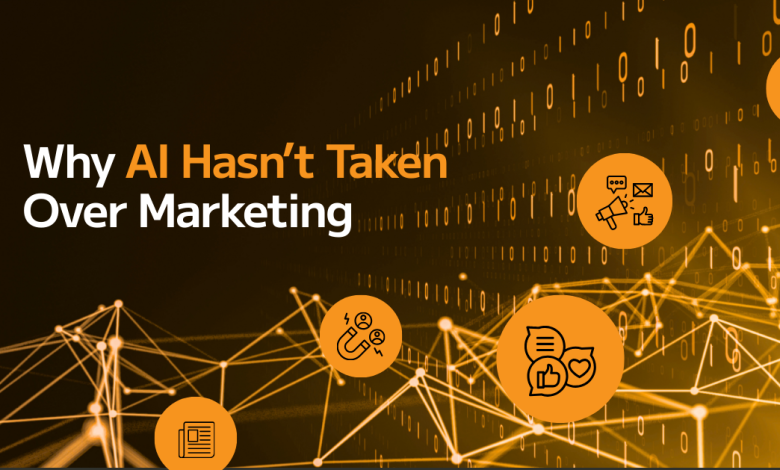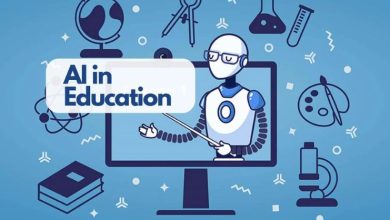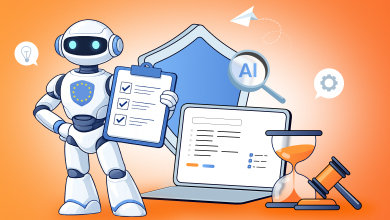
ChatGPT, Google Gemini, and other AI-powered platforms are making headlines on a daily basis. There is no surprise that AI is everywhere, shaping and redefining everything. But one thing has yet to be made clear: how is AI going to be impacting creative industries like marketing and communications and why has it not yet taken over? The application may not be so simple, nor is the answer to that fundamental question.
Industries like marketing are driven by trust, creativity, relationships and the human touch – areas where technology can’t outperform people, some may argue. Adoption is happening across the industry in many capacities, with 85% of marketers using AI in some capacity — from SEO and lead generation to media buying and customer engagement.
And yet, the industry hasn’t been wholly swept away by AI. Instead, adoption has been incremental and often inconsistent. AI is being seen as evolutionary rather than revolutionary, quickly functioning as a support system for marketers to execute rather than replace. But is that truly the case?
What areas has AI made an impact, and where can the technology be best applied and leveraged for businesses? Conversely, which areas have been slow to adopt AI?
Enhancing Search Engine Optimization
AI is fundamentally shifting how search engines work and how marketers generate leads through them. It is turning SEO from a purely tactical exercise into a more predictive, dynamic, and audience-centric discipline.
Search algorithms now rely on a combination approach of traditional keyword integrations and intent-driven optimization. Not to mention, the added ability for a brand to become ‘searchable’ on AI platforms.
- Search Algorithms: Search engines are increasingly using AI models to understand intent, not just keywords. This means SEO is moving from keyword driven to intent-driven optimization.
- Content Creation & Optimization: Marketers can use AI to generate topic ideas, create first drafts, and optimize content for readability, relevance, and keyword alignment. Tools now also suggest search-intent clusters, schema markup and FAQs.
- Predictive Analytics: AI-powered SEO tools can forecast which keywords are likely to trend, enabling proactive content planning rather than reactive optimization.
- Personalization: AI allows websites to dynamically adjust on-page experiences, tailoring CTAs or content blocks based on user behavior, improving dwell time and conversion rates.
- Visibility: AI-driven platforms (Generative Engine Optimization, LLM Optimization) are becoming just as important as traditional SEO rankings. This shows how brands appear in AI-generated answers, which influence prospects in the “zero click” journey.
Personalizing Lead Generation
AI is amplifying both the efficiency and the targeting precision of lead generation programs. From the foundation of customer mapping, research, and audience segmentation, to predictive models and execution, AI integrates across campaign stages. Through delivering actionable market insights, defining clear ICPs, and automating campaigns, AI streamlines the lead generation process from start to finish.
AI’s ability to automate bidding across channels, optimize ad spend in real-time, and learning along the way helps to drive the best ROI and optimize spend.
Perhaps the most significant contribution AI is making to this area of marketing is personalization. 73% of marketing professionals agree that AI is vital to creating more personalized customer experiences. By creating dynamic and relevant content tailored to specific industries, buyer personas, or even individuals, rather than manual drip campaigns, AI can orchestrate adaptive nurture journeys that shift messaging based on user interactions and preferences.
Through AI enhancements, companies can expect better ROI on paid media, sharper ABM (account-based marketing) campaigns, and minimize wasted spend. This means a stronger pipeline with higher-quality prospects, through the development of dynamic ads, optimized touchpoints, and smart sequencing, all while engaging with prospects with the right message at the right time.
Engaging Social Media
AI applications in areas such as social media are evident. Automated scheduling, community engagement, social listening, reporting, and analytics these once manual tasks are now streamlined and automated. In addition, AI supports the evaluation of brand sentiment, conversations, and trends across online platforms. The result: faster engagement cycles and more in-depth community insights.
Data-Driven Campaigns and Analytics
Analytics and data reporting represent one of the most obvious applications for AI in the marketing field. Yet, further enhancements such as predictive ROI and campaign simulation still remain in its experimental phase.
These reporting capabilities, those established and those being tested, can further support marketing budgets and KPI management. Ultimately, AI tools give marketers more actionable insights, with less time deciphering and pulling complex data. This is likely to be an area where we see significant evolution for AI in this sector.
Content Creation
Content continues to be one area that most marketers, including myself, are questioning. While AI certainly serves its purpose of streamlining back-end work, including research, analysis, and distribution of content, the purpose and uniqueness of content in marketing is its perspective, creativity, and personalization.
This is where AI continues to have its limitations: it is a tool, not a strategist nor a decision maker. It cannot replicate human experience, interactions, or innate preferences, not to mention the ethical risks associated with its use regarding accuracy, bias, privacy, responsible data use, legalities, and the list goes on. We could spend an entire article focusing on this topic, debating its applications, risks, and rewards, but let’s not digress.
The Lost Art of Storytelling
Great marketing doesn’t just inform — it persuades, inspires, engages, and builds connections. Sure, AI can streamline workflows, enhance processes, even personalize copy, but it still struggles with the subtlety of tone, cultural nuances, ingenuity, and authenticity. Marketers know that if a campaign feels impersonal, trust erodes fast.
As for the marketing and communications industry, it has become clear that original strategy, creative vision, human intuition, empathy, and understanding complex narratives still lie in our hands.
The real opportunity for AI and marketers lies in collaboration. AI takes on the heavy lifting — data analysis, optimization, automation, production — while marketers focus on what they do best: strategy, creativity, and human connection. AI delivers speed and scale, but strategy, imagination, and human judgment turn it into impact.
Marketing’s future is not AI or humans. It’s AI with humans, it’s marketing enhanced by AI — a partnership that leverages both the efficiency and accuracy of machines with the vision and creativity of people to tell their stories.


